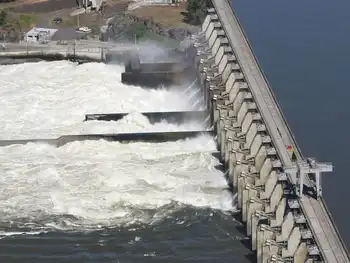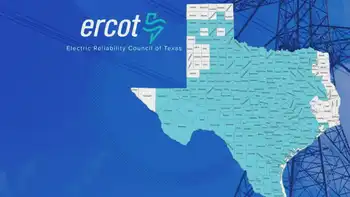U.S. looks to private sector to fix greenhouse pollution
WASHINGTON, D.C. - Delegates from six of the world's biggest greenhouse gas polluters - including the United States - gathered recently for the first time to figure out how private industry can help curb global warming.
The Bush administration is promoting this voluntary effort as a practical way to develop clean-energy technology to tackle climate change. But an environmental expert dismissed it as busy-work that would not be as effective as the requirements imposed by the international Kyoto Protocol on global warming.
Initially skeptical, the U.S. administration accepts the reality of global climate change, which has been associated with stronger hurricanes, severe droughts, intense heat waves and the melting of polar ice.
Greenhouse gases, notably carbon dioxide emitted by motor vehicles and coal-fired power plants, trap heat like the glass walls of a greenhouse, causing Earth to warm up.
More than 300 delegates from the six countries - Australia, China, India, Japan and South Korea, in addition to the United States - met recently in California for the first working sessions of the Asia-Pacific Partnership on Clean Development and Climate.
These six countries account for about half of the world's emissions of climate-heating greenhouse gases. Only one of the six, Japan, is committed to reducing greenhouse gas emissions by 2012 under the Kyoto agreement.
Unveiled last July in Laos and formalized with a high-level meeting in Australia in January, the partnership aims to spur development of cleaner, more energy-efficient technologies, said Paula Dobriansky, under secretary of state for democracy and global affairs in a telephone briefing as the meetings proceeded at Lawrence Livermore National Laboratory.
The California meeting was the first chance for working groups to discuss "concrete steps," Dobriansky said, adding that the group was aiming for "tangible results over these next six months."
The Bush administration has requested $52 million for fiscal 2007 for this program spread among the departments of State, Energy and Commerce and the Environmental Protection Agency.
James Connaughton, chairman of the White House Council on Environmental Quality, dismissed a question about the seemingly low level of U.S. government financial backing.
"(That) perspective is completely turned around," Connaughton said in the telephone briefing. "Only with private sector investment does the technology get deployed. The government does not go out into the world and spend the several trillion dollars that are about to be spent on the technologies that are going to be the solutions to this problem."
Government's role, he said, is to guide investment.
David Doniger, a former Clinton administration expert on climate change now with the nonprofit Natural Resources Defense Council, said that without limits on greenhouse gas emissions, the partnership will be ineffectual.
"The partnership is symptomatic of the Bush administration failure to do anything serious at home or abroad about global warming, because it's all voluntary," Doniger said by telephone.
Over the past 30 years, the Earth has warmed by 1.08 degrees Fahrenheit (0.6 degrees Celsius); over the last 100 years, it has warmed by 1.44 degrees F. (0.8 Celsius), according to NASA's Goddard Institute for Space Studies.
Related News

Salmon and electricity at center of Columbia River treaty negotiations
VANCOUVER - With talks underway between Canada and the U.S. on the future of the Columbia River Treaty, the B.C. New Democrats have launched public consultations in the region most affected by the high-stakes negotiation.
“We want to ensure Columbia basin communities are consulted, kept informed and have their voices heard,” said provincial cabinet minister Katrine Conroy via a press release announcing meetings this month in Castlegar, Golden, Revelstoke, Nakusp, Nelson and other communities.
As well as having cabinet responsibility for the talks, Conroy’s Kootenay West riding includes several places that were inundated under the terms of the 1964 flood control and…




